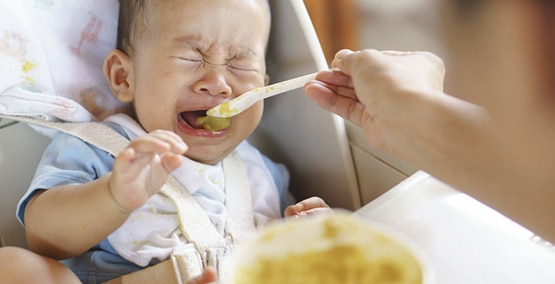
Infant feeding habits that can promote obesity in children
Learn to trust your baby's hunger cues and
-Unknowingly, parents can promote obesity in their own children as early as 2 months of age, a study reports in the journal Pediatrics.
Among some of the ethnic and cultural behaviors that may lead to childhood obesity are early introduction of solids, primarily
- putting cereal in a baby's bottle
- encouraging a baby to continue to eat or drink even after the baby shows no interest
- drinking sweetened drinks
Mothers and infants who spend long hours in front of a television screen or babies fed or cared for by a television watching parent were often fed with a propped bottle and did not get enough time on their tummy were also associated with weight gain.

Helping Your Baby to a Healthy Weight
To give your baby a good head start on a healthy weight, start by actively feeding her so you can tell when she has had enough. Propped bottles promote overfeeding. Make time every day to let your baby have tummy time between feedings to help foster normal physical development.
More feeding tips:
- Trust your infant. Babies know when they have had enough to eat or drink and show parents by turning their heads, looking away or releasing the nipple. You may encourage your baby to accept more but never force feed and accept the baby's decision when she has had enough.
- Solids are meant to be delivered by a spoon, not from a nipple. Solids are not necessary the first six months of life according to the Academy of Pediatrics. In general, babies who can sit up and hold their heads up can start solids between four and six months of age.
- Infant formula or breast milk is adequate the first six months of age.
- Keep in mind that a baby's stomach is usually about the size of her fist.




